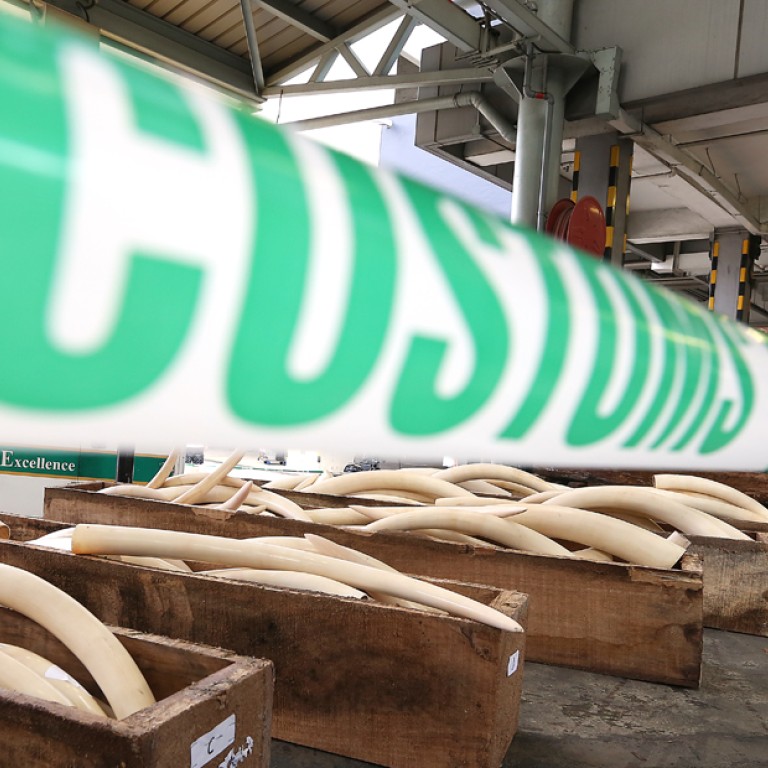
Hong Kong adds muscle in fight against ivory traffickers
The adult African elephant has no natural predators, but trophy hunters and ivory traffickers are a threat to the survival of the species. Two recent developments should be good news for the largest living terrestrial animal, and hopefully bad news for its human predators. Hong Kong, one of the Asian transit points for the illegal trade in ivory tusks and rhino horns, has just shipped a record seizure of 33 rhino horns and hundreds of carved ivory items back to South Africa, where they can be used as forensic evidence in court against illegal hunters.
The adult African elephant has no natural predators, but trophy hunters and ivory traffickers are a threat to the survival of the species. Two recent developments should be good news for the largest living terrestrial animal, and hopefully bad news for its human predators. Hong Kong, one of the Asian transit points for the illegal trade in ivory tusks and rhino horns, has just shipped a record seizure of 33 rhino horns and hundreds of carved ivory items back to South Africa, where they can be used as forensic evidence in court against illegal hunters. And 30 African and Asian nations have agreed on measures to tackle the illegal ivory trade. They include countries of origin in Africa, Asian transit ports such as Hong Kong and consumer destinations, principally China and Thailand.
The African Elephant Summit in Botswana vowed a zero-tolerance approach, including tough sentences for wildlife crimes and boosting law enforcement against poaching syndicates. It also classified ivory trafficking as a serious crime to pave the way for more international co-operation, including seizure of assets and extradition to face justice.
Hong Kong's High Court granted an order for return of the ivory and rhino horn to South African under a mutual legal assistance agreement that came into effect two years ago.
The traditional demand for ivory in Asia, boosted by the nouveau riche in the mainland, is fuelling wholesale elephant slaughter in defiance of a ban on most trade in new ivory.
Hong Kong accounts for a significant proportion of the total amount of ivory seized globally each year. Because there has been no sustained increase in seizures in recent years, local officials are not convinced the city is becoming a regional hub for the illegal trade. But how much actually passes through Hong Kong can only be guessed at, since we only know of interceptions of shipments by increasingly resourceful syndicates. There may be a case for controlled culling of some elephant populations to maintain a balance of wildlife habitat, but that is best left to conservation authorities.

